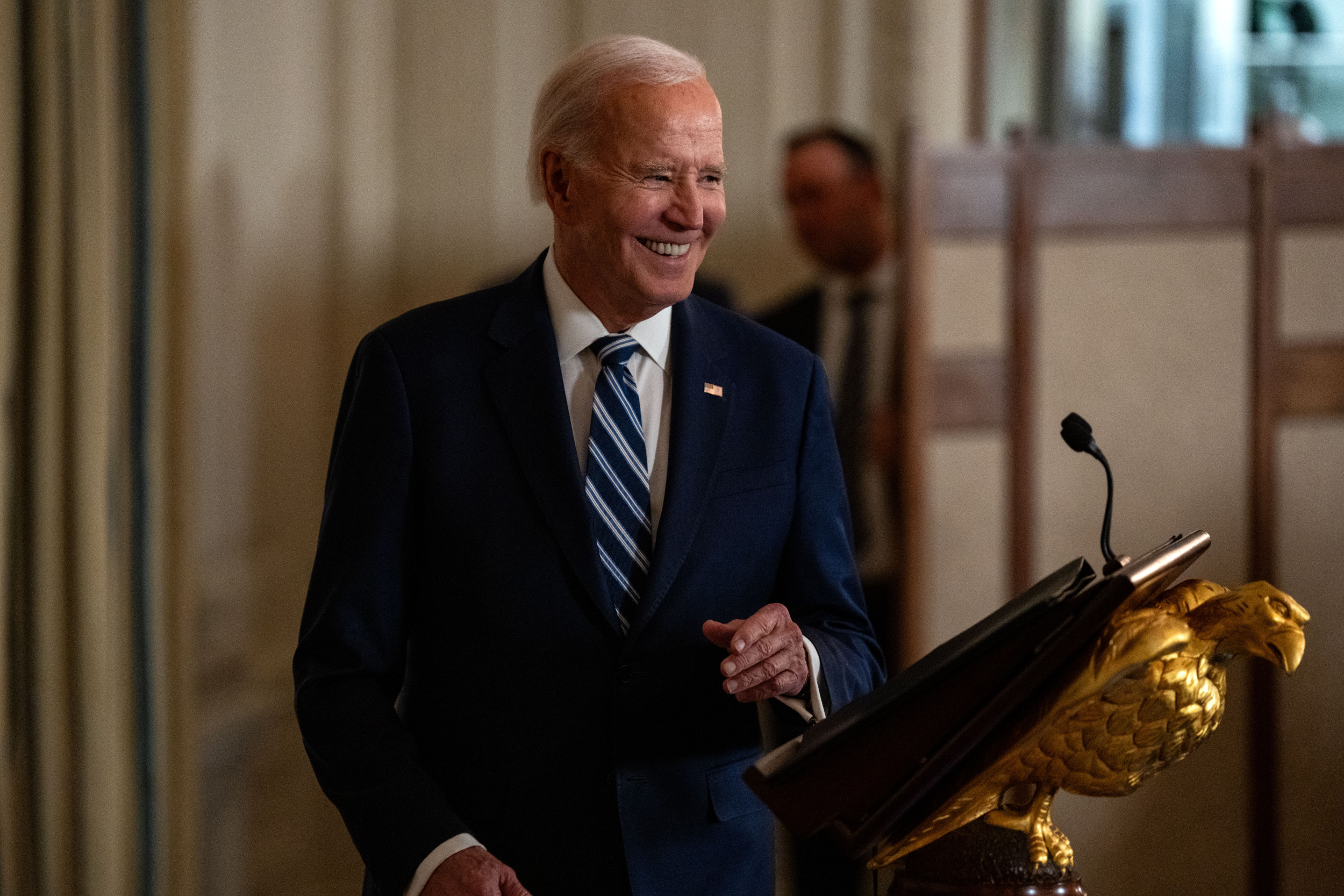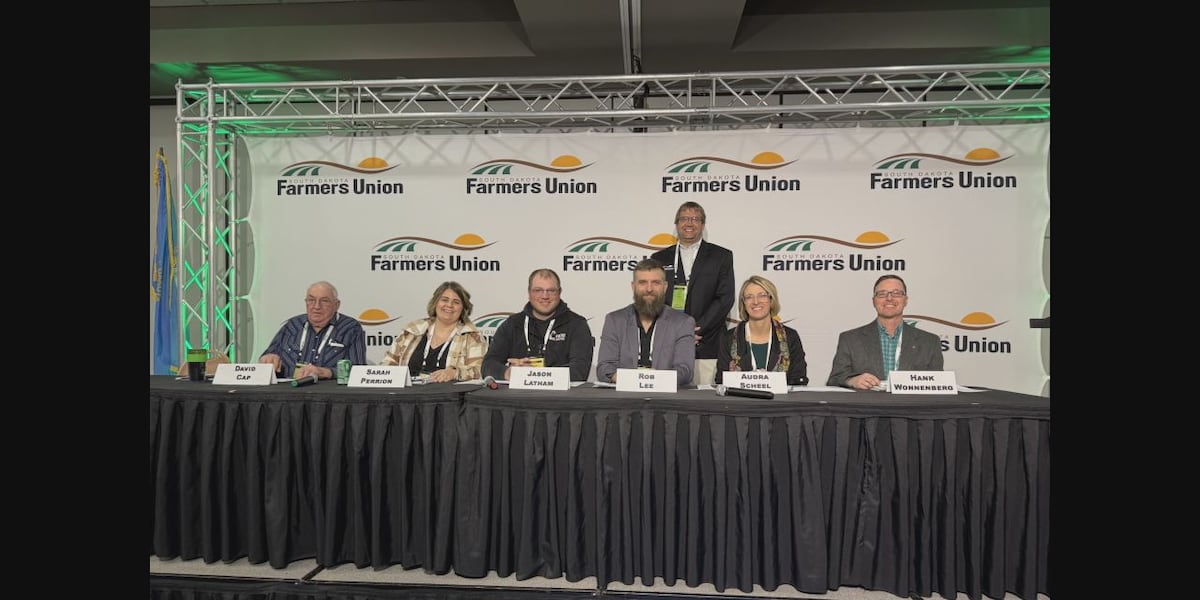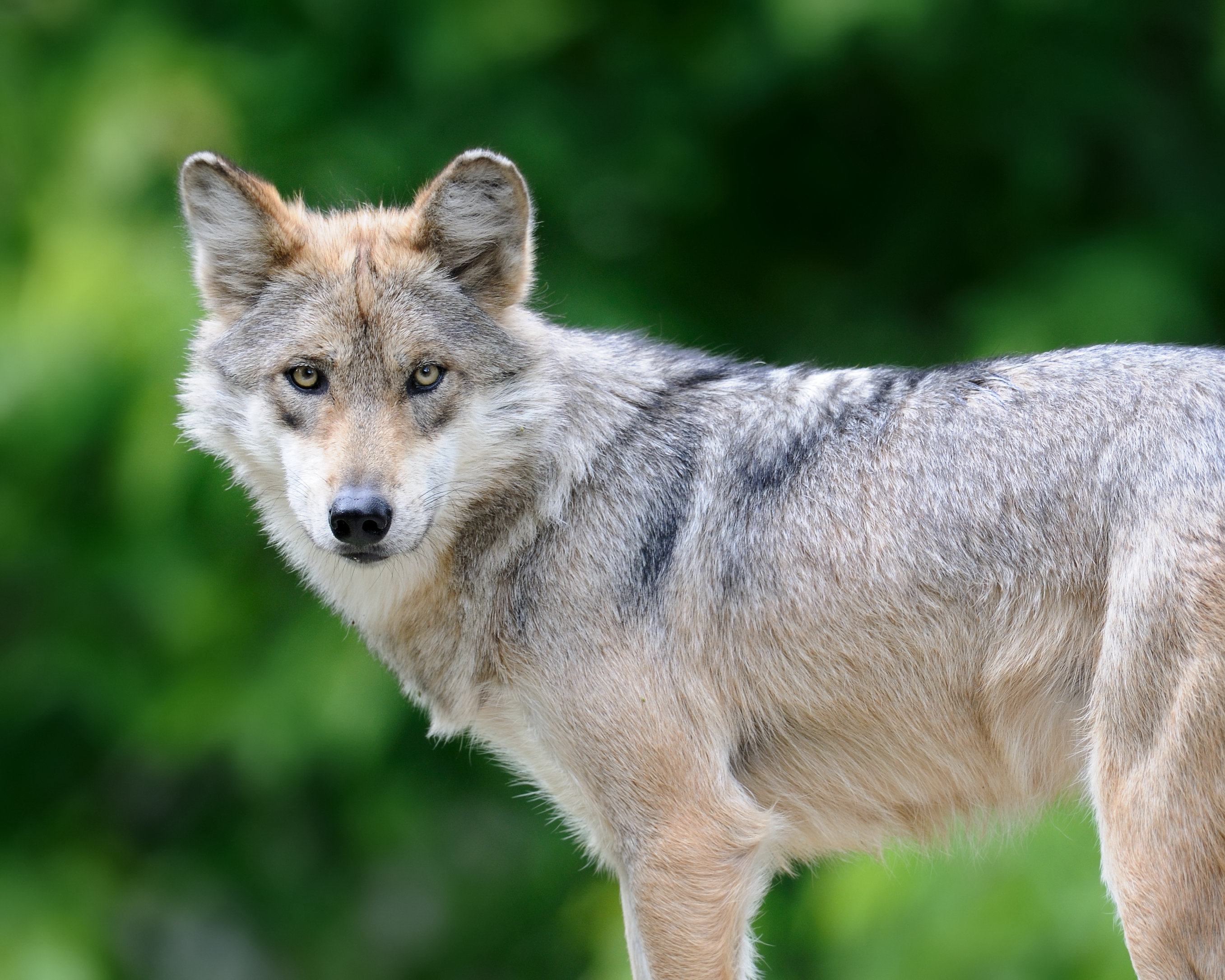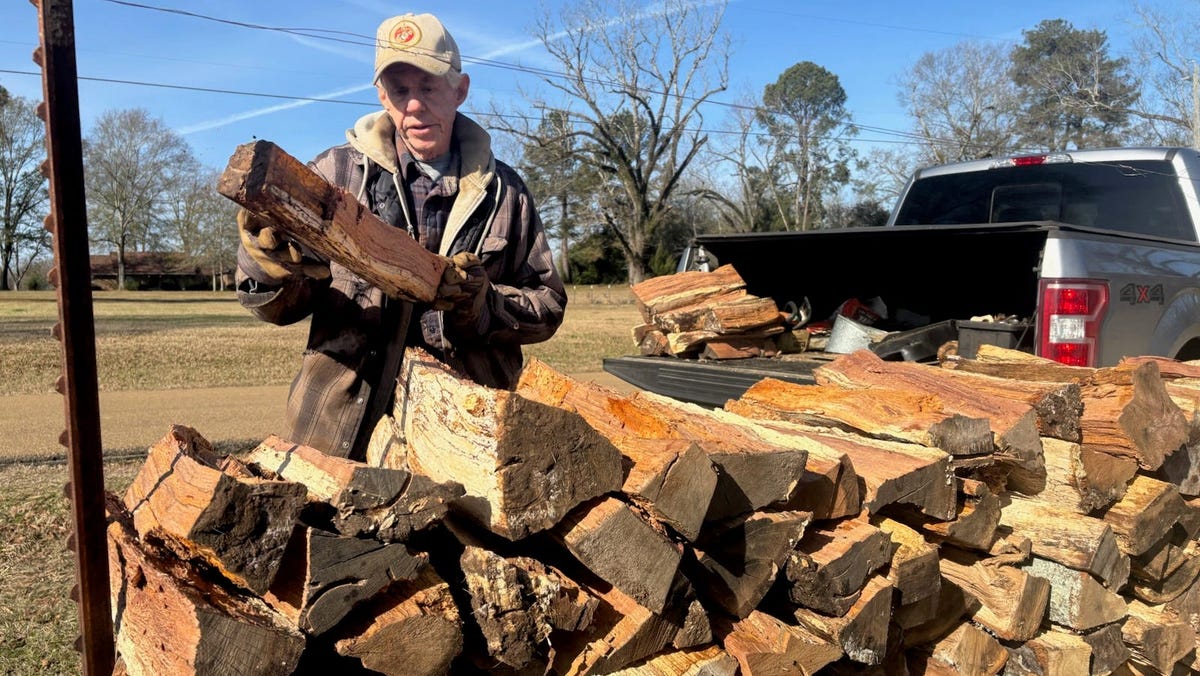New Mexico
Feral cattle in Gila likely spared aerial gunning in 2024 – Source New Mexico

The U.S. Forest Service determined it will not be using helicopters and guns to cull cattle loose in the Gila National Forest next year.
Federal officials said aerial operations were unnecessary, because of a smaller herd size, according to a Dec. 5 federal court filing for the District of New Mexico.
“Forest Service estimates that the number of remaining Gila Cattle is roughly in the neighborhood of 10-20 animals, with some degree of uncertainty outside that range due to the large area at issue and the evasive nature of the animals,” the filing stated. “As a result of this estimate, Federal Respondents do not intend to proceed with aerial lethal removal operations of the Gila Cattle in February 2024.”
Federal officials said any removals in 2024 would be ground-based roundups.
The context
Feral cows in the Gila have been a long-standing issue.
The U.S. Forest Service said it stemmed from action taken in the mid-1970s, after a rancher with a federal grazing permit declared bankruptcy and abandoned his cattle in the national forest.
Local and national nonprofit conservation organizations applauded efforts to remove the cattle, noting that their defecation and erosion in riparian environments, and potential for habitat destruction threaten federally-listed species living in the Gila Wilderness.
Over the years, 756 cattle were removed (dead or alive) from the Gila Wilderness, the Forest Service said in a 2022 press release. Of those cattle, only one cow captured in 1998 was branded. The rest did not have an ear tag, brand or other marker of ownership.
Federal officials said nearly half the feral cattle rounded up on the ground do not survive capture and removal, “due to stress and self-inflicted injury.”
In 2022, the National Forest Service said it killed 65 cattle during a two-day arial operation, but the practice ignited further criticism in 2023. The issue touched on emotionally-charged issues such as endangered species protections, animal cruelty and federal lands management. The fracas between the federal government, cattle organizations and conservation groups sparked national stories from a variety of outlets.
In February, a special team of federal officials sniped 19 cattle from a helicopter on public lands, after vocal objections from state cattle organizations.
Days before the scheduled operation, the New Mexico Cattle Grower’s Association, ranchers and the Humane Farming Association sued federal officials. In court filings, they called the practice “unlawful, cruel and environmentally harmful.”
The groups said that federal officials failed to provide 75-days of notice, and raised concerns that wildfires destroyed fences that allowed branded cattle to mingle with the unowned, unbranded cattle.
Their lawyers disputed whether the cattle in the Gila were feral – a domesticated animal returned to a wild state.
Forest officials argued that the federal district court was the wrong venue for the action.
A federal judge overruled the cattlemans’ injunction to stop the action, saying there was proper notification, and ruled that the cows were feral animals.
Killing the unbranded cattle was necessary to protect hikers, waterways and habitats for threatened and endangered species, said Camille Howes, the supervisor at the Gila National Forest.
“The feral cattle in the Gila Wilderness have been aggressive towards wilderness visitors, graze year-round, and trample stream banks and springs, causing erosion and sedimentation,” Howes said in a February statement.
Gov. Michelle Lujan Grisham weighed in after the U.S. Forest Service shot the 19 cattle, saying she was disappointed in the “lack of meaningful, long-term engagement with New Mexico stakeholders on controversial matters like this one,” and likened it to processes such as prescribed burns.
The New Mexico Cattle Growers Association joined with others and sued to seek a permanent stop of the Forest Service shooting cattle from the air in the Gila Wilderness. The federal judge allowed the conservation nonprofit The Center for Biological Diversity to intervene in the lawsuit, which is still ongoing.
Now, parties involved in the lawsuit asked a federal judge to postpone a hearing scheduled for December, until February. According to court records, that motion hearing has not yet been rescheduled.
GET THE MORNING HEADLINES DELIVERED TO YOUR INBOX

New Mexico
25 years of thinking: Think New Mexico talks history, plans for 2025 legislative session
New Mexico
Mayor: Free land for any NM university that helps revitalize Downtown ABQ

New Mexico
New Mexico needs semi-open primary elections. Our voters, and our democracy, deserve it

The numbers are alarming.
In 2024, only 17% of registered voters in New Mexico cast their ballots in the state’s primary elections. More than 300,000 registered New Mexican voters—roughly a quarter of the state’s registered voting population—are currently blocked outright from participating in primaries.
Those are not a pair of percentages that indicate significant levels of voter participation in New Mexico. And they certainly do not point to a democracy that is representative of the residents of our state.
Opening up primary elections by allowing voters registered as independent or unaffiliated—about 25% of New Mexico’s voting populous—to participate in primaries is one meaningful measure the state should take to improve its voter participation rates and, in turn, its democracy.
More specifically, New Mexico should adopt semi-open primaries. In closed primaries, only folks registered with one of the two major parties in the state, the Democratic Party and the Republican Party, can vote in primaries. Semi-open primary elections allow voters registered as independent, minor party voters, or those without a party altogether, to vote in primaries by selecting a ballot from one of the two major parties.
New Mexico certainly would not be alone in partially opening up its primary elections. In fact, 38 states have some form of open primary elections, meaning only 12 states—including New Mexico—currently run totally closed primaries.
New Mexico should add its name to the long list of other states that let all registered voters participate in consequential elections.
Studies have shown the democratic benefits of open primaries are numerous. Fundamentally, closed elections restrict large portions of eligible voting populations from taking part in taxpayer-funded elections they pay for.
This disenfranchisement means that the vast majority of general elections are left unrepresentative. Politicians become comfortable pandering directly to the top 3% of major party voters, instead of truly representing all segments of their constituents.
Downstream from that disenfranchisement and political stagnation is voter apathy. Because partisan activists and special interest groups are given disproportionate electoral power, folks not associated with major parties or who classify themselves independent have little motivation to make their voices heard in closed primary systems.
New Mexico has seen these effects. The state has the highest number of uncompetitive districts in the U.S, meaning the winners of the general election are decided in the primaries, where over 300,000 people can’t vote without added barriers.
Lack of electoral competition and low voter participation all make meaningful change difficult in New Mexico. Minimal voter participation means many of the people most affected by various issues aren’t making their voices heard at the ballot box.
Thankfully, there is a national movement to open up primary elections—a movement that extends into the Land of Enchantment. You can join the movement for open primaries and, in turn, a better democracy in New Mexico by calling your elected officials and urging them to support legislation for semi-open primaries during the 2025 legislative session. You can also champion democracy in your communities by sharing the benefits of semi-open primary elections with your friends, acquaintances, colleagues, neighbors, and loved ones. Everyone is better off when more people are empowered to vote.
You can learn more about this issue and other ways to participate in opening up primary elections in New Mexico at NMVotersFirst.org.
Sen. Carrie Hamblen represents District 38 and Doña Ana County in the New Mexico Senate.
-

 Science1 week ago
Science1 week agoMetro will offer free rides in L.A. through Sunday due to fires
-
/cdn.vox-cdn.com/uploads/chorus_asset/file/23935558/acastro_STK103__01.jpg)
/cdn.vox-cdn.com/uploads/chorus_asset/file/23935558/acastro_STK103__01.jpg) Technology1 week ago
Technology1 week agoAmazon Prime will shut down its clothing try-on program
-

 News1 week ago
News1 week agoMapping the Damage From the Palisades Fire
-
/cdn.vox-cdn.com/uploads/chorus_asset/file/25826211/lorealcellbioprint.jpg)
/cdn.vox-cdn.com/uploads/chorus_asset/file/25826211/lorealcellbioprint.jpg) Technology1 week ago
Technology1 week agoL’Oréal’s new skincare gadget told me I should try retinol
-
/cdn.vox-cdn.com/uploads/chorus_asset/file/25832751/2192581677.jpg)
/cdn.vox-cdn.com/uploads/chorus_asset/file/25832751/2192581677.jpg) Technology4 days ago
Technology4 days agoSuper Bowl LIX will stream for free on Tubi
-

 Business5 days ago
Business5 days agoWhy TikTok Users Are Downloading ‘Red Note,’ the Chinese App
-
/cdn.vox-cdn.com/uploads/chorus_asset/file/25835602/Switch_DonkeyKongCountryReturnsHD_scrn_19.png)
/cdn.vox-cdn.com/uploads/chorus_asset/file/25835602/Switch_DonkeyKongCountryReturnsHD_scrn_19.png) Technology2 days ago
Technology2 days agoNintendo omits original Donkey Kong Country Returns team from the remaster’s credits
-

 Politics1 week ago
Politics1 week agoTrump to be sentenced in New York criminal trial




















